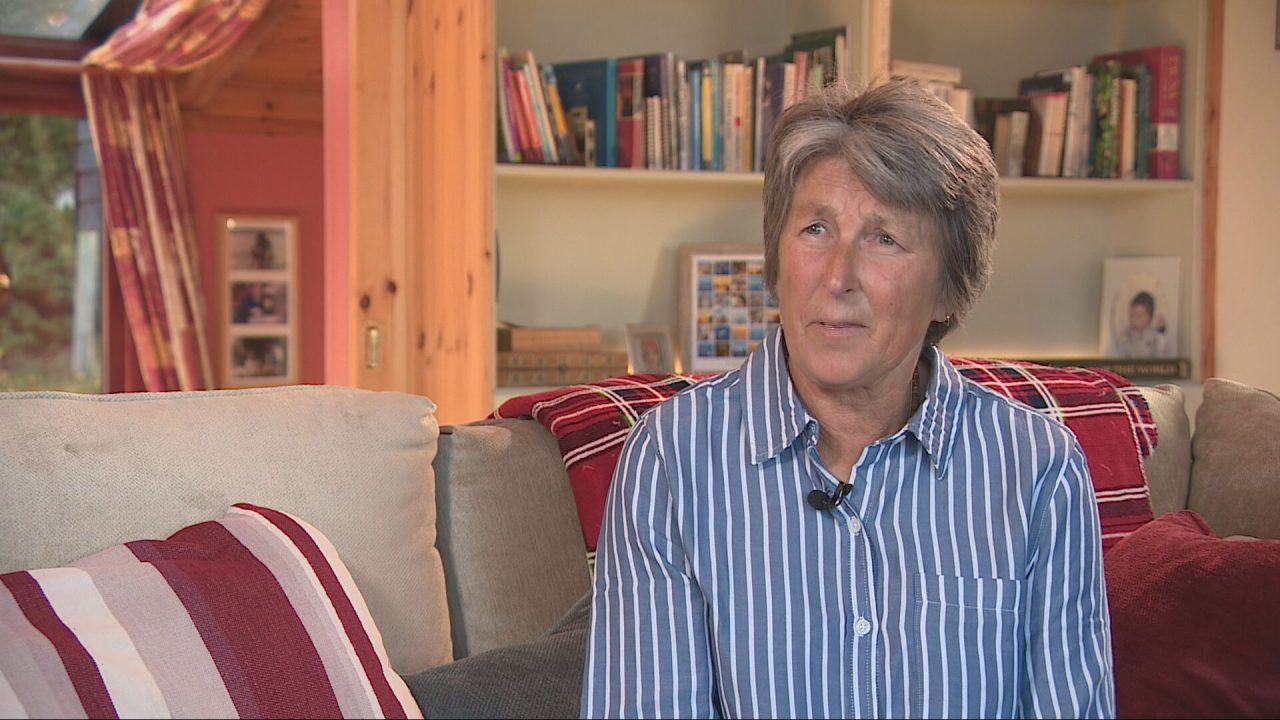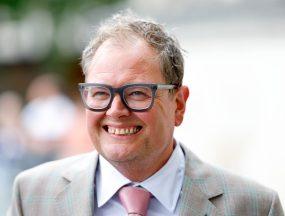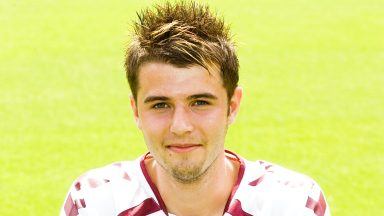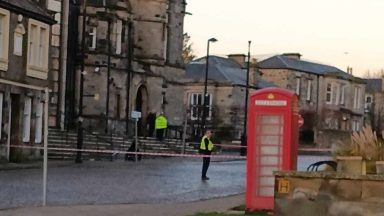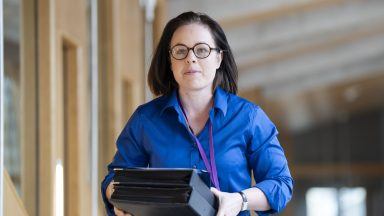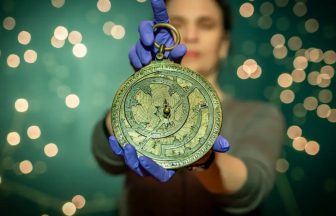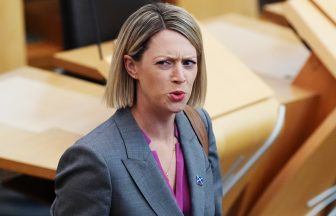A Scottish kayaker and consultant rheumatologist has told how a routine trip to the north coast turned into a medical emergency that left her believing she had suffered a heart attack.
Jane Gibson, an experienced paddler who has “always lived an active life”, fell ill in 2020 after a sudden incident at sea while kayaking with her husband, Gary, and a group of friends.
The couple had travelled north as Covid restrictions eased. “That particular day, it was an absolutely gorgeous day,” she told Scotland Tonight. “It was really sunny.”
Their group was struck by a series of large waves, knocking Gary out of his kayak and separating him from the others. Jane went ashore to get help.
“I knew there was a cottage on the headland,” she said. “So I thought ‘right, if I go in, then at least if I go up the headland, I can see him and, if necessary, call for help’.
“So I pulled my boat up onto the rocks and ran up this craggy bit. I stood up on the headland and turned round and saw that actually he was fine. He’d self-rescued, he was on the beach, everything was fine.”
Moments later, Jane was hit by sudden and severe symptoms.
“It just hit me,” she said. “I just got this intense pain around the back of my neck, a really gripping tightness into my jaw, no chest pain or anything, and I just felt terrible. I sank to my knees and didn’t really know what was going on.
“It passed after a few minutes. I went down, got into my boat and felt a bit breathless and just not right. Three strokes and then had to stop.
“Then we had to carry the boats up, and I thought, I’m just going to lie down here because I’m not right. And I took my pulse and it was 35, and I went, ‘Gary, I think I’ve had a heart attack’.”
Jane was airlifted to Raigmore Hospital in Inverness for tests. Doctors later confirmed she had not suffered a heart attack but had experienced Takotsubo cardiomyopathy, often known as “broken heart syndrome”.
The condition, which disproportionately affects women, can be triggered by physical or emotional shock and causes a sudden weakening of the heart.
Despite her medical background, Jane said she knew little about it.
She said: “I had to google it. Although I’d heard of it, I didn’t know the ins and outs. So I had to look it up, look up some papers and find out a bit more about it.
“It was a relief that I didn’t have heart disease. But then also, I read that it could be just as serious and have just as high a mortality rate. So [I felt] relief in some ways, but ‘oh, this is quite serious’ in another respect.”
While recovering in hospital, she was invited to join a clinical trial led by Dr David Gamble at Aberdeen University, looking at whether standard coronary care, cognitive behavioural therapy (CBT) or an intensive exercise programme could help patients recover more effectively.
“This was the first randomised clinical trial in Takotsubo cardiomyopathy anywhere in the world that looked at can we help people’s hearts recover after they’ve had an acute episode,” said Dr Gamble.
“Interestingly, there’s a lot of evidence that says that the common medicines that we use in cardiology, ones that help the heart muscle or ones that thin the blood, actually don’t have evidence that they help in Takotsubo cardiomyopathy.”
The study found that CBT and exercise delivered significant improvements.
Dr Gamble said: “The heart’s a pump. And its ability to generate energy, we know, is severely impaired in Takotsubo cardiomyopathy, both when it happens acutely, but also a number of years down the line.
“So we were particularly interested at looking at, does this energetic capacity of the heart recover? So that was our primary endpoint of the study. And remarkably, both exercise training and cognitive behavioural therapy improved that in a statistically significant manner.”
Jane took part in the exercise arm of the trial. “The programme was really, really tough, even for somebody who’s pretty fit,” she said. “But the good thing about that was it, as somebody who does loads of sport anyway, it said yes, it’s okay for you to exercise. It’s better for you to exercise than not and sit at home and worry about things.”
She has since made a full recovery. “I train regularly, paddle regularly, run, and do lots of other sports,” she said. “So I just thank my lucky stars that I wasn’t too badly affected and that I was in the study.
“At the end of it, I had repeat investigations and they were able to say, it’s completely fine, you’re completely well. You can still go and be the person that you were.”
Watch the full report, Scotland Tonight: Broken Heart Syndrome at 7:30pm on Thursday on STV and the STV Player.
Follow STV News on WhatsApp
Scan the QR code on your mobile device for all the latest news from around the country


